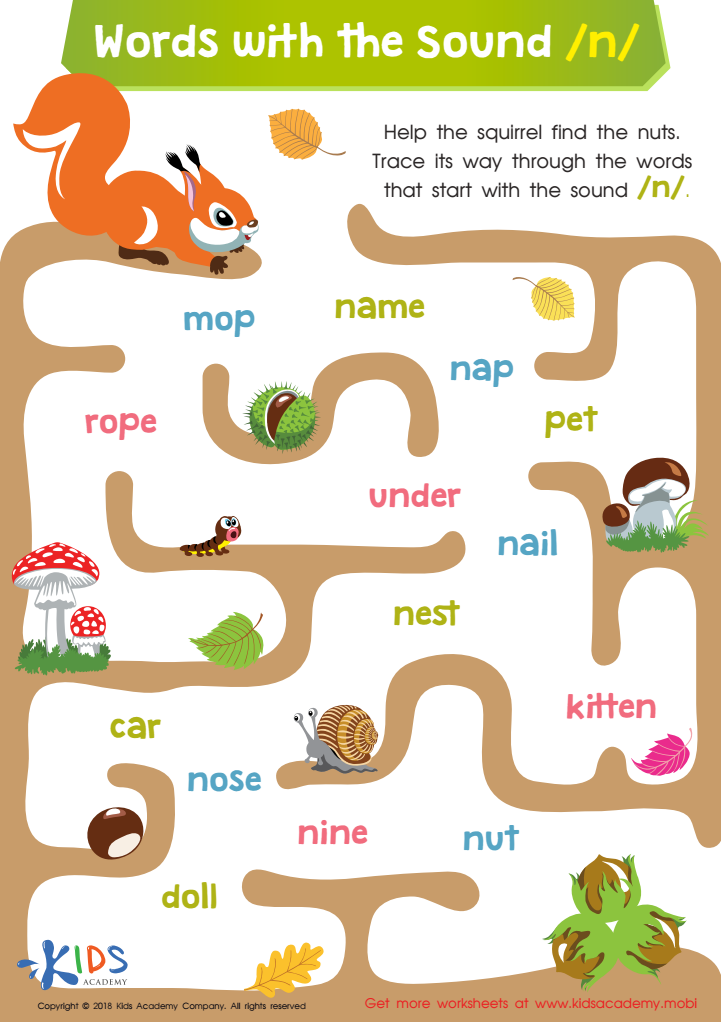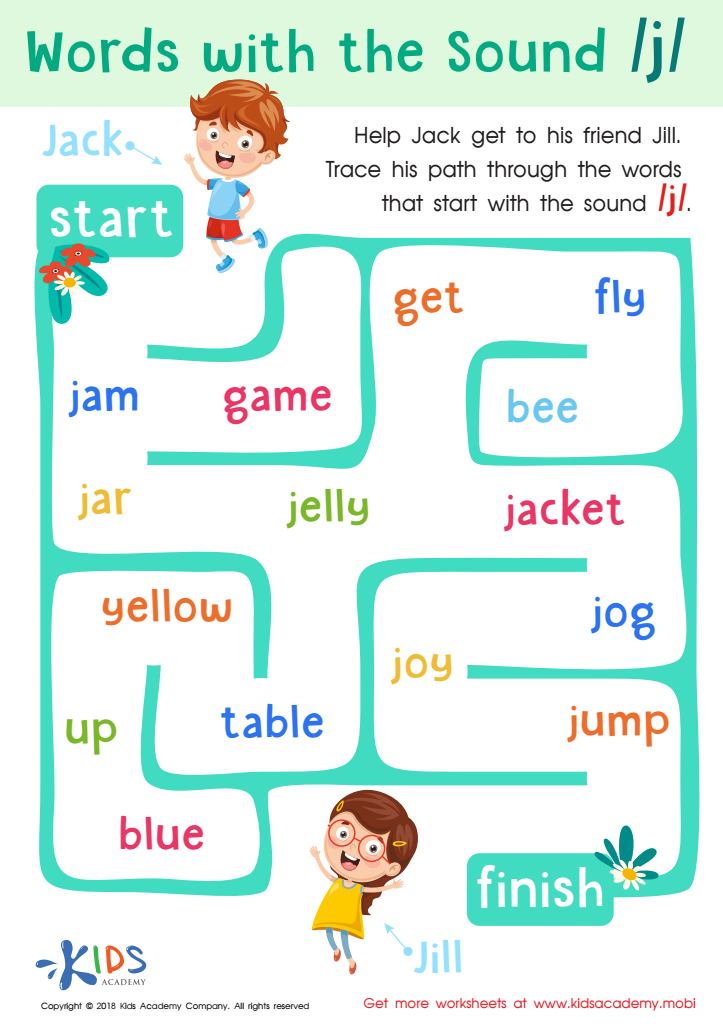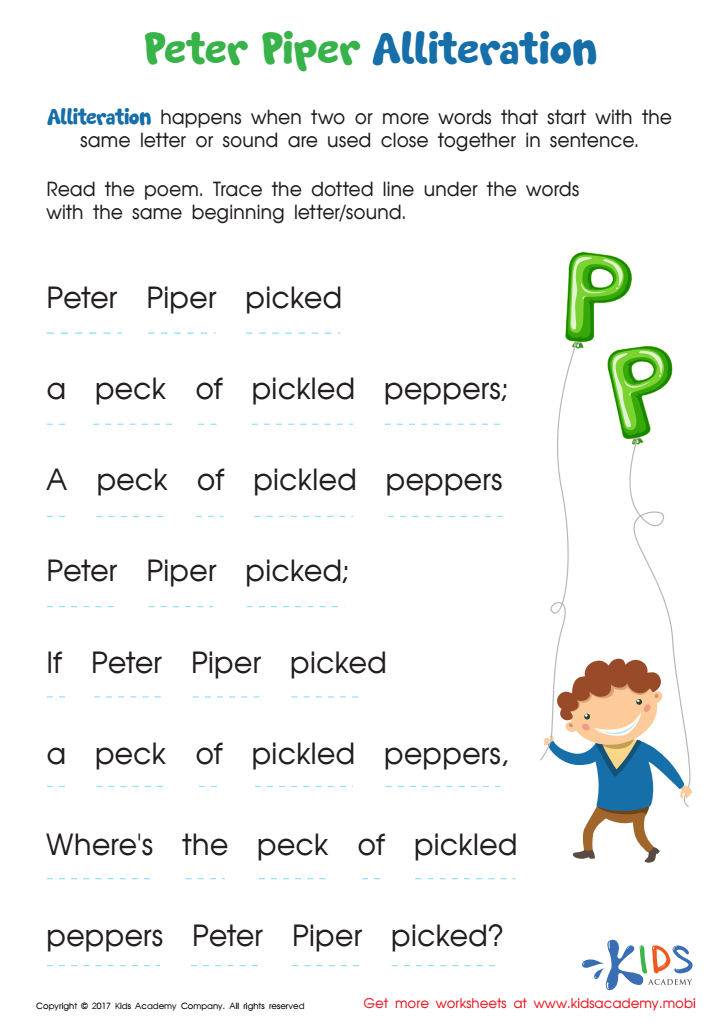Extra Challenge Beginning Consonants Worksheets for Ages 5-9
3 filtered results
-
From - To
Boost your child's phonics skills with our "Extra Challenge Beginning Consonants Worksheets for Ages 5-9"! Crafted for early learners, these engaging worksheets offer fun and stimulating exercises that help kids master the initial consonant sounds. Perfect for both home and classroom use, each page is designed to enhance early reading and writing abilities. Watch as your child connects images and words, identifying and practicing beginning consonants with confidence. These worksheets support developmental growth, ensuring a solid foundation in phonics. Discover a world of educational fun with our expertly designed printable resources that make learning a joyful experience!


Words with Sound N Reading Worksheet


Words with sound j Reading Worksheet


Peter Piper Alliteration Worksheet
Extra Challenge Beginning Consonants activities are crucial for children ages 5-9 because mastering these skills forms the foundation of reading and literacy. At this developmental stage, kids are transitioning from recognizing letters to forming words, and identifying beginning consonant sounds is a critical step in this process. Not only does it help in phonemic awareness—the ability to hear, identify, and manipulate individual sounds in spoken words—but it also supports spelling and word recognition skills.
When children can differentiate between consonant sounds, they can more easily learn to decode new words, which enhances their confidence and fluency in reading. This foundational skill will also support their writing abilities, leading to better overall communication skills. Furthermore, engaging in these activities can make learning fun and interactive, keeping children motivated and eager to learn.
For parents and teachers, prioritizing Extra Challenge Beginning Consonants reinforces a positive learning environment and encourages cognitive development. It sets the stage for academic success in many areas, including vocabulary acquisition and comprehension. By investing time and attention in these early literacy skills, we can help build a strong, lifelong foundation for learning and foster a love for reading and knowledge in young children.
 Assign to My Students
Assign to My Students













